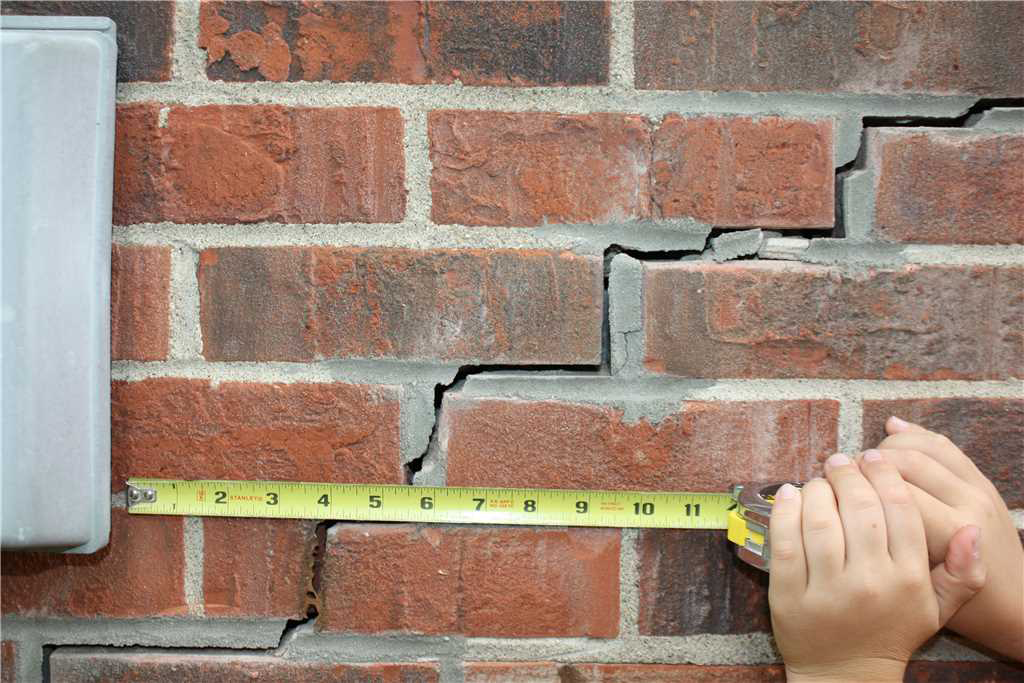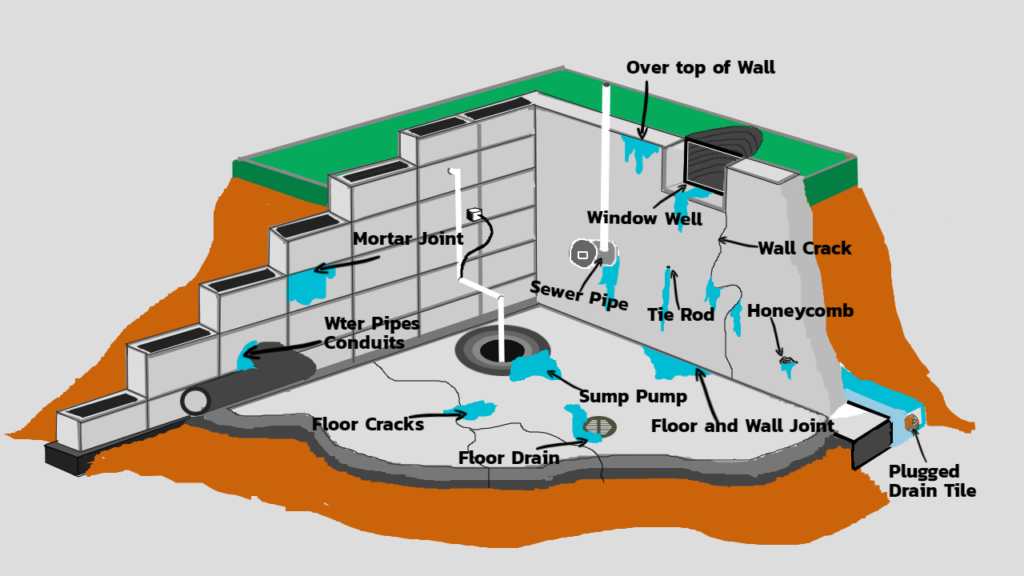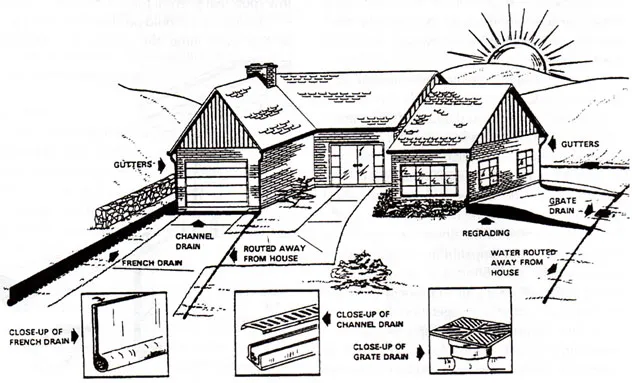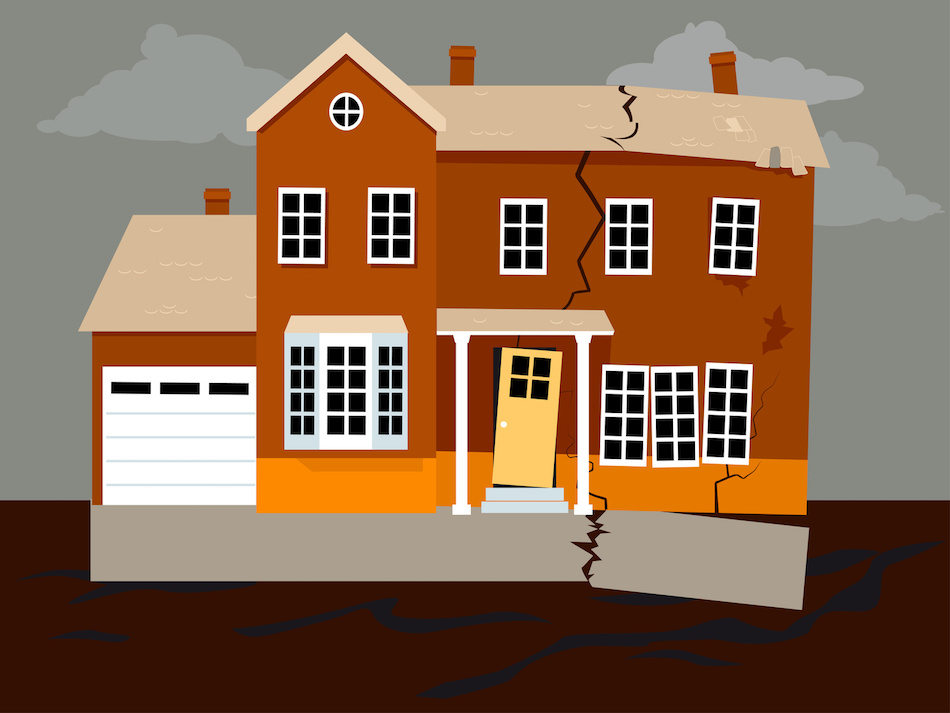If you are like many homeowners in the Dallas and Fort Worth area, you are probably wondering why foundation issues are so common in our community. In this blog, you’ll learn more about what causes these issues and how to prevent them at your home.

What are Common home Foundation Issues?
Unfortunately, foundation issues are fairly common in the Dallas – Fort Worth area. According to a recent survey by AccuWeather, list Dallas – Fort Worth metroplex has one of the fastest sinking cities in the US. They also warned of the pending risk of homes sinking by 2 inches every decade. Signs you may have an issue at your home include:
- Horizontal foundation cracks
- Vertical foundation cracks
- Patio or sidewalk cracks
- Cracks or crumbled bricks anywhere on the exterior of your home
- Cracks on your chimney
- Drywall or sheetrock cracks inside your home
- Uneven floors
- Doors or windows that don’t open or close properly
- Cabinets that open by themselves
- Plumbing leaks
- Moisture in your crawl space

What Causes These Issues?
Foundation issues are often caused by a combination of the weather and soil conditions, construction mistakes when the home is built, and lack of preventative maintenance. Let’s tackle each of these in more detail:
Soil and Weather Conditions
The Dallas – Fort Worth region is known for having expansive clay in its soil. Expansive soils have water absorbing minerals in them. This causes the soil to expand or shrink based on the amount of moisture present.
When expansive soils expand, it places pressure on your home’s foundation, causing cracking and other issues as noted above. Cracking can allow water to permeate your home, causing additional headaches, including flooding, mold and mildew.
Expansive clay soil would be worrisome enough in a moderate climate with frequent and predictable rainfall patterns. However, Dallas is known for long, hot summers coupled with intense storms. When rainfall comes into contact with hot and dry soil, the soil expands very rapidly, multiplying the forces placed on your foundation. This increases both the likelihood and severity of damage to your home.
Construction Mistakes
Inadvertent mistakes during the construction of your home could contribute to foundation issues down the road. Some common mistakes include:
- Loose soil – without proper care, the soil around a construction site ends up being much more loosely packed once the foundation is installed. Grated soil can become loose and porous. If the builder does adequately compact the soil before commencing construction, the foundation may slip, and could possibly even sink as ground conditions vacillate between wet and dry.
- Poor quality building materials/installation – if your home was built using substandard building materials or construction techniques, you could pay the price down the road. Even if your home passed all state inspections, you could still have issues if the materials used were not ideal for your soil type or were damaged during construction.
- Improperly treated concrete – if construction was started on your home before the foundation had adequate time to cure, you could be in for foundation issues down the road. Improperly cured foundations are more brittle, and therefore more likely to fail than properly cured foundations.
Lack of Preventative Foundation Maintenance
Even well-designed and well-constructed homes can experience foundation issues if the home is not maintained properly. Fortunately, there are several steps homeowners can take to either avoid issues completely or reduce their severity. These include:
- Invest in a well-designed drainage system – installing a french or surface drain helps keep large amounts of rain water away from your foundation.
- Install gutter downspouts (and keep them clean) – like drainage systems, gutter downspouts are designed to keep water away from your foundation. While it’s important to invest in a good quality system installed by a professional (we can help with this), it’s equally important to clean your gutters on a regular basis. Leaves, tree branches and other debris can clog your gutters, effectively rendering them useless.

- Use soaker hoses and sprinklers to stabilize moisture levels – during those hot Texas summers, it’s important to utilize soaker hoses and sprinklers in maintaining some moisture in the soil around your home. This will help mitigate rapid expansion during a major rainstorm or other weather event.
- Proper landscaping – trimming trees and keeping large shrubs and other landscaping away from your house also plays a role in foundation maintenance.
- Regular inspections – Regular inspections of your foundation can save you time and money. Noticing small cracks and other imperfections early allows you to work with an advanced foundation repair company like Maestro’s before more serious damage occurs.
For example, repairing small cracks before water is allowed to permeate into your home is a much smaller and less expensive repair. We recommend doing a monthly walk around your foundation and noting anything that seems out of the ordinary. Any large cracks or small cracks that are expanding rapidly should be inspected right away.
When in doubt, give us a call and an experienced inspector will review the damage and develop an appropriate repair plan.
Summary
Foundation issues are all too common in North Texas. The combination of expansive soils and extreme weather conditions are mostly to blame. When soil expands it places pressure on your home’s foundation, causing cracking, uneven floors and other undesirable issues. The severity of these issues may be mitigated by working with a high-quality, experienced builder at construction, investing in preventative maintenance (drainage, soaker hoses and proper landscaping) and regularly inspecting your foundation.
